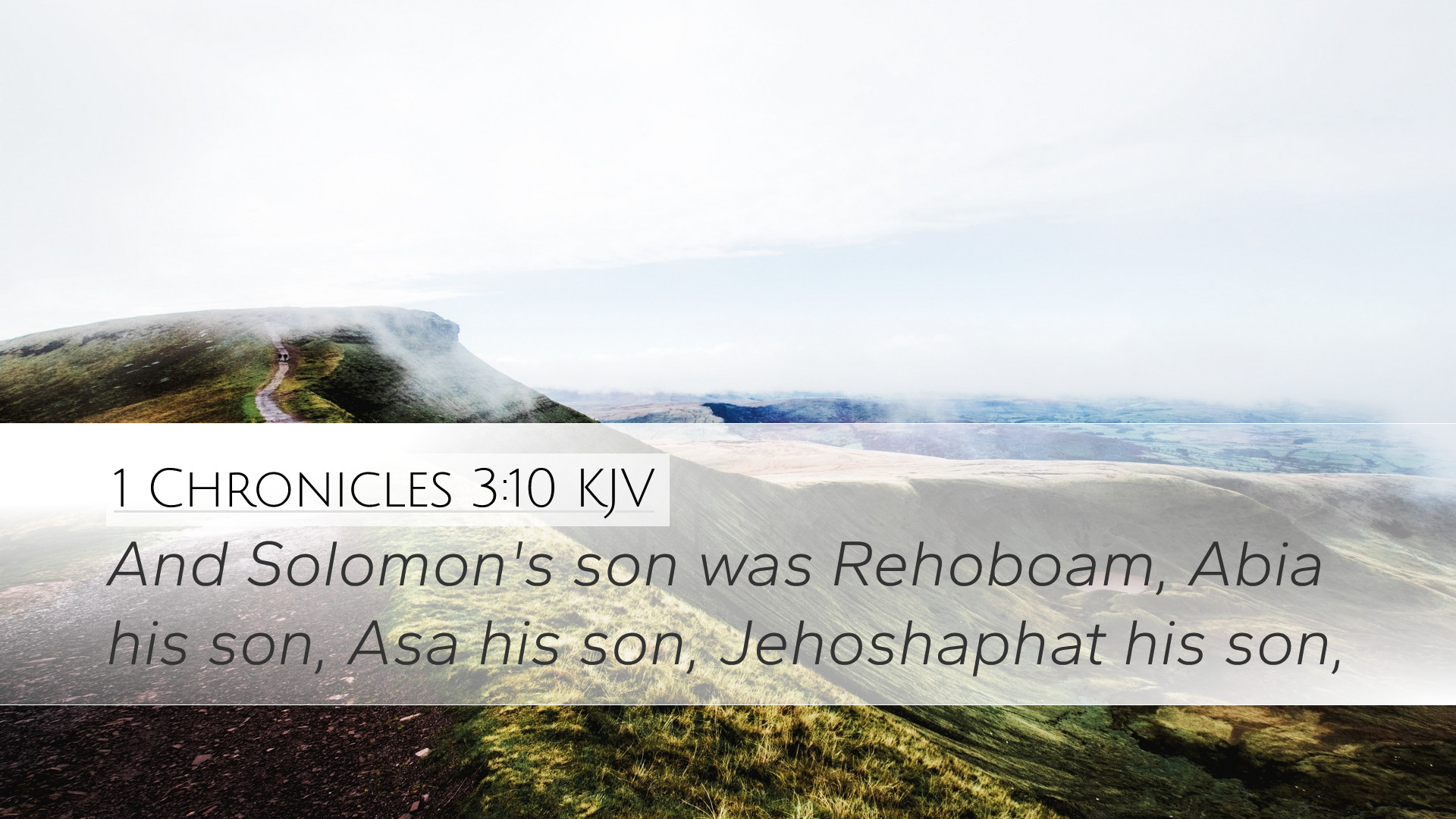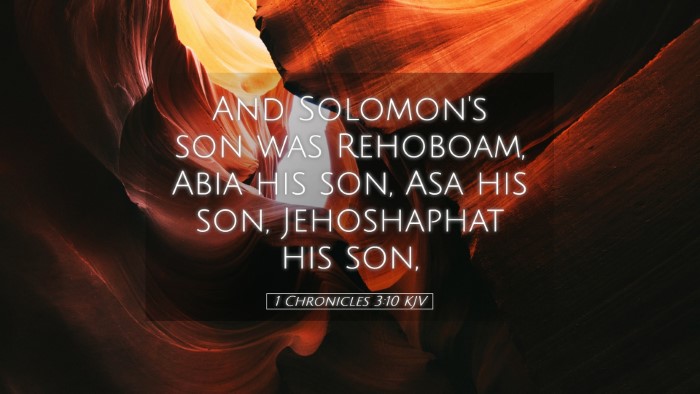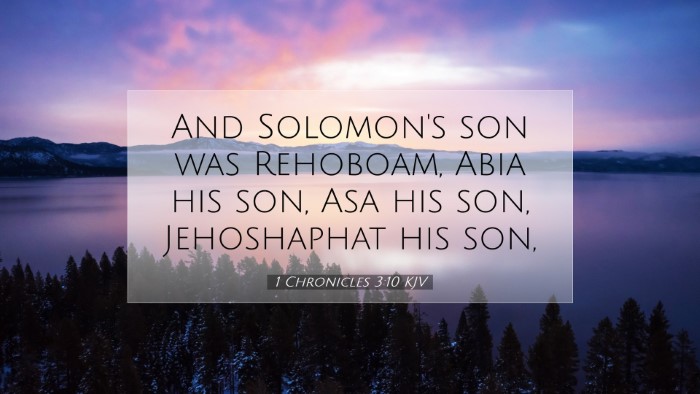1 Chronicles 3:10 Commentary
Verse: "And Solomon's son was Rehoboam, and Abijah his son, and Asa his son, and Jehoshaphat his son." (1 Chronicles 3:10)
Introduction
This verse, part of the genealogical record in 1 Chronicles, highlights the lineage of Solomon, transitioning from the reign of Solomon to that of his descendants. The genealogies in Chronicles serve as a means to establish continuity in leadership and divine promise within the history of Israel.
Contextual Background
The genealogies in 1 Chronicles not only confirm the legitimate line of David but also underscore the importance of ancestry and divine selection during Old Testament times. The chapters leading up to this verse discuss the history of Israel's monarchy, particularly under David and Solomon.
Significance of the Genealogy
This lineage serves several purposes:
- Theological Affirmation: It emphasizes God’s covenant with David, affirming His promise that the throne would remain in David's line.
- Establishing Authority: By tracing the descendants, it establishes the rightful authority of Rehoboam and subsequent kings.
- Cultural Identity: Highlights the importance of heritage in Jewish culture, situating leaders within a framework of divine purpose.
Commentary Insights
Matthew Henry's Perspective
Matthew Henry emphasizes the providence of God in the preservation of Solomon’s lineage. He notes the transition from Solomon to Rehoboam as a critical junction in Israel's history, marking a shift toward division and strife.
Henry points out that the mention of Rehoboam is particularly poignant as it foreshadows the forthcoming disunity within the kingdom. He elaborates on Rehoboam's early reign and the decisions that led to the ten tribes breaking away, indicating the complex nature of leadership and legacy.
Albert Barnes' Analysis
Albert Barnes provides additional insights into the succession of kings. He highlights the character and reign of each king mentioned in this verse. Barnes asserts that Rehoboam, despite his royal lineage, was faced with immense challenges that would radically reshape the kingdom.
Barnes also explores the implications of Abijah, Asa, and Jehoshaphat, emphasizing their varying degrees of faithfulness and leadership qualities. He points out how their reigns reflect the spiritual condition of the nation, thus reminding readers of the moral responsibilities of rulers.
Adam Clarke's Commentary
Adam Clarke delves into the individual names in the verse. He mentions that Rehoboam’s name means "he who enlarges the people," which is prophetic of his rule that, while initially promising, would ultimately lead to division.
Clarke also discusses the significance of Asa and Jehoshaphat in the royal lineage, highlighting their reforms and commitment to God, serving as counterpoints to Rehoboam's failures. This juxtaposition illustrates the broader theme of fidelity to God among leaders, a critical element for the nation's welfare.
Applications for Today
The genealogical records, especially the ones detailing the lineage of significant leaders like Solomon, present important lessons for contemporary readers:
- Legacy: The verse encourages leaders today to reflect on their legacy and how their decisions impact future generations.
- Divine Sovereignty: It affirms the belief that God is sovereign over human affairs, working through human history to accomplish His will.
- Cultural Identity and Heritage: Today's believers can appreciate their spiritual heritage and the importance of living righteously, mindful of the legacy they will leave behind.
- The Role of Leadership: The verse serves as a reminder of the moral and spiritual responsibilities of leaders in any capacity.
Conclusion
1 Chronicles 3:10 may appear as a mere list of names, yet it encapsulates profound theological truths and historical insights. It serves to affirm God’s fidelity to His promises and the significance of human actions within the divine narrative.
In studying the line of David, readers are prompted to reflect on their own lives, their commitments, and the legacies they are building in a world that thrives on continuity and history. The stories of Rehoboam, Abijah, Asa, and Jehoshaphat remain relevant, urging us to consider how our choices reverberate throughout time.


